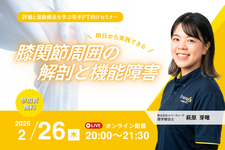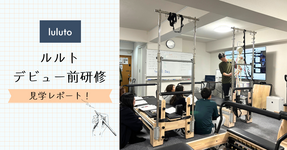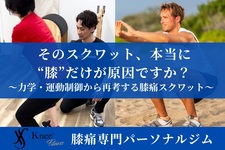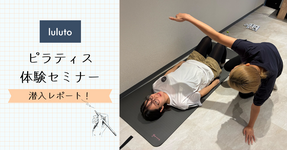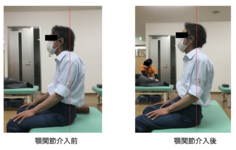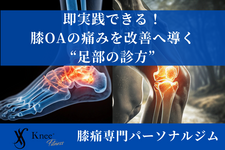
―なぜ先生は、women’s health and pelvic health physical therapyに興味をもたれたのですか?
ローリー先生 理学療法の学校へ通っている時、2人目の子供を妊娠しました。しかし、腰痛に悩まされ、当時の教授に相談しても、誰も触りたがりませんでした。患者として怖かったようです。
学生の頃は、団体を作り勉強会を開催していたのですが、あるインストラクターを呼んだ時、women’s healthのことを教えてくれました。
その時、インストラクターが私に徒手理学療法を行ってくれて、妊娠最後の3週は痛みに悩まされることがありませんでした。この経験が、私をこの道に進ませる経験となりました。医師に相談をしても「妊娠していれば腰痛になりますよ」というだけ。
あまりの痛さに、つまずいて転びそうになることもありました。
―日本でもこの分野は徐々に浸透してきつつあります。しかし、一般の方々に認知されていないのが現実ですが、米国ではどのように浸透して入ったのでしょうか?
ローリー先生 私が働いていた州では、women’s healthの専門理学療法士が、私一人の時代がとても長かったのです。ですから、当時は私が何をやっているのか、わかっていなかったと思います。
そんな中でも、医師との交流場に足を運び、意見交換をしたり、手術の見学に入ることもありました。PRする場所があれば積極的に発表し、クライアントの新聞屋さんに情報を載せてもらったこともありました。
とにかく人に会って、伝えることを続けていると、その人がまた別の人に話をシェアし始めるという流れが起こりました。その広がりを見ているのが、楽しかったことを覚えています。
男性、女性関係なく話題をシェアしてくれる姿を見ているのが、非常に楽しかったですね。非常に閉鎖的な分野であっても、まずは人に伝えるところから一つずつ行っていけば必ず認知されていくと思います。
この活動を行なっていくためには、夫の理解が必要でした。私の夫は一歩引いて主夫となり、私の活動を応援してくれていましたので、私は積極的に仕事をすることができました。
―米国では産休がほとんどないと聞いたことがあるのですが。
ローリー先生 その通りです。私が第一子を出産した時、出産したのが水曜日で、その次の月曜日には学校に通学していました。大学院では3週間休むことができたのですが、出産後5日目にテストのため出席し、それから3週間休むことにしました。それが第二子の出産の時です。
3週間休んだ後は、すぐに実習です。第三子の時は、すでに勤務していたので6週間の産休をもらうことができました。
第四子ではすでに自分のクリニックを持っていて、休みもこれまでよりも多く取ることができましたが、十分な休養とは言えないですね。
とても過酷な出産経験ではありますが、妊娠中にエクササイズや骨盤底筋群のケアを行なっていたので、陣痛も強くなりすぎることもなく、早くに復帰できたのだと思います。
―日本でwomen’s health and pelvic health physical therapyの分野に進もうと思っている方々にメッセージをお願いいたします。
ローリー先生 情熱が大切であることは間違いありません。慣れないプレゼンをするときも、怖がらず積極的に行動することです。医師との関係においても、怖がらず積極的に意見交換をするべきです。
たくさんエビデンスも作って、その根拠を提示することができれば、必ず報われます。すべての経験を記録し、その記録が皆さんのやっていることの証明になります。
皆さんの情熱が、また別の人の心に火をつけることができれば、“世界を変えることができる”と思っています。
―ありがとうございました。今回の講習を受け、今のお話を聞き、臨床での疑問が解決することができました。
ローリー先生 (日本語で)どういたしまして。笑
LORI MIZE PT, DPT, WCS Profile
Lora “Lori” Mize is a board certified specialist in women’s health and pelvic health physical therapy and graduated with her Doctorate in Physical Therapy in 2004 from the University of Central Arkansas. She has worked as a clinician devoted to women’s health and pelvic rehabilitation for 11 years and is now working primarily in academia as an Assistant Professor of Physical Therapy in the Lynchburg College Doctor of Physical Therapy Program in Virginia, USA. She has also served as an adjunct instructor for the University of Central Arkansas for 8 years.
Lori has been an instructor for the American Physical Therapy Association’s (APTA) Section on Women’s Health (SoWH), teaching in the area of pelvic health for 5 years and currently serves on the Board of Directors as the Director of Education for the SoWH. She has previously served on the Section’s Pelvic Health Committee as the Assistant Chair where she authored and reviewed course materials for the pelvic health series.
Her primary teaching areas include Administration, Clinical Practice, Professional Involvement, Documentation, and Pelvic Health.
Tell people more about this item. Give people the info they need to go ahead and take the action you want. To make this item
Mary McVearry is a Pelvic Health Physical Therapist at the Division of Urogynecology at Walter Reed National Military Medical Center and
a Faculty member of the Urogynecology fellowship program. She has been the Associate Professor of OBGYN at the Uniformed Services University of Health and Science and served as Director for the Northwestern University Physical Therapy Alumni Association Board.
Professionally, Mary treats both men and women in orthopedic, peri- partum, neurologic, traumatic, and oncology related pelvic health dysfunctions. She has been a recipient of research award grants from Section on Women’s Health and IUGA and was also a recipient of the Annual Rehabilitation Award in 2012 by AMSUS, the Society of Federal Health Professionals. She is actively involved in teaching and clinical supervision of graduate medical education of physical therapy, nurse practitioner, and medical students at the University and Walter Reed.
She is passionate about promoting pelvic health and has completed a 1- month medical mission through the International Organization for Women's Development in which she trained physical therapists and developed a peri- partum exercise program for women in Rwanda. She hopes to continue international pelvic health training in the future.
















